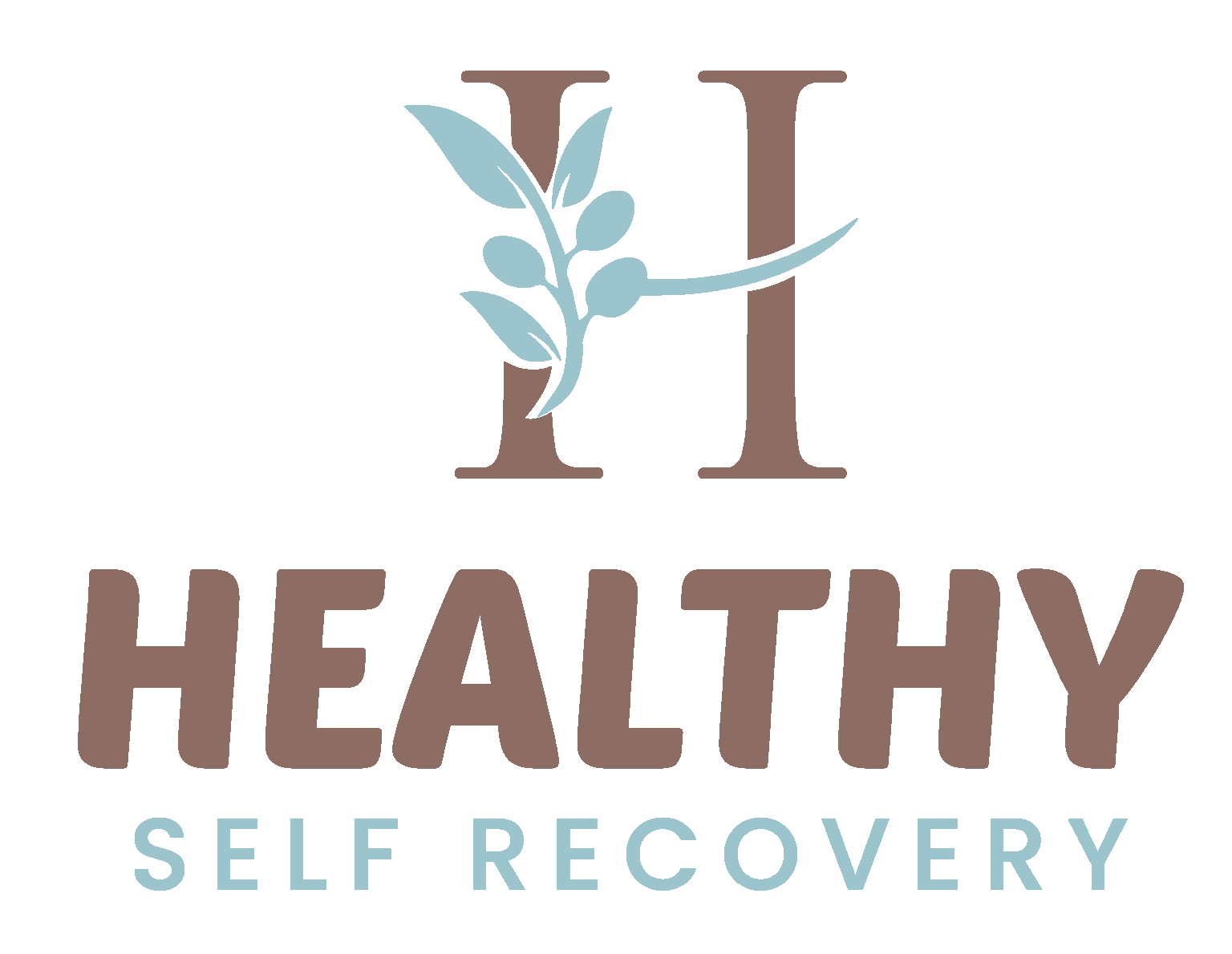Eating disorders like anorexia, bulimia, and binge eating disorder are serious mental health conditions that affect millions worldwide. Despite their complexity and severity, with the proper treatment and support, full recovery is absolutely possible, no matter how long someone has struggled. As a certified eating disorder recovery coach, I am here to share my own experience of working with a coach and how that helped me reclaim my health and my life after many years of struggling with an eating disorder. My hope is that this blog will inspire you to believe that recovery is possible for anyone, no matter how long you have had your eating disorder, and that having the support of a certified eating disorder coach while in eating disorder recovery coaching as a complement to other treatments can be pivotal in changing the trajectory of your life.

The Potential For Recovery
Eating disorders are treatable mental health conditions, not choices that people make.
People once believed that recovery meant only managing symptoms while continuing to struggle with disordered thoughts to some degree. But evidence and lived experiences now show something different—full and complete recovery is truly possible.
The key to achieving lasting recovery is in finding specialised support that resonates with your unique experience of an eating disorder. The most effective treatment approaches are multidisciplinary, involving a team of eating disorder specialists, including therapists, dietitians, and increasingly trained coaches. This comprehensive approach addresses all aspects that influence an eating disorder – from painful emotions, distorted thoughts and beliefs, and food-related behaviour – making it truly a whole-person approach to recovery. Coaching uniquely bridges the gap between clinical care and real-world use of pro-recovery skills.
The Importance of Neuroplasticity: Your Brain Can Heal and Recover
Eating disorders often come about as a coping mechanism for stress or difficult emotions. Over time, these behaviours become so habitual automatically trigger in response to almost every situation. This is why changing these entrenched eating disorder thought patterns can feel so overwhelming. There is hope, however, through the amazing process of Neuroplasticity. Neuroplasticity is the brain’s ability to change and adapt in response to experience. For those on the recovery journey, this means that as you start to behave and reframe thoughts and feelings, you are actually creating new neural pathways in your brain. While it might be challenging and painful to act differently to begin with, consistent practice strengthens these healthier connections. With persistence and patience, these eventually become the brain’s preferred route. With time and effort in changing behaviours, your brain can rewire so that pro-recovery actions and behaviours overshadow the eating disorder voice.
Defining Recovery and Being Fully Recovered
Establishing a definition of “full recovery” is essential. Carolyn Costin and Gwen Grabb, in their book “8 Keys to Recovery From an Eating Disorder,” describe it eloquently. A recovered person accepts their natural body size and shape and maintains a healthy, balanced relationship with food and exercise—free from self-destructive patterns. In recovery, food and weight take a proper perspective in your life, and what you weigh is not more important than who you are; in fact, actual numbers are of little or no importance at all. When recovered, you will not compromise your health or betray your soul to look a certain way, wear a certain size, or reach a certain number on a scale. In recovery, you stop using eating disorder behaviors to deal with, distract from, or cope with other problems.
Whilst this definition brilliantly encapsulates recovery in terms of food and body image, in my opinion, it represents only part of the journey. Eating disorders seep into all aspects of a person’s life, and the patterns of restriction, avoidance, control, or chaotic behaviour often extend beyond food, affecting other aspects of one’s life such as career, relationships, sex, money, and much more. In my opinion, true recovery extends beyond the Carolyn Costin definition to encompass being able to engage fully in all aspects of life without restriction, compensation, or avoidance behaviours. Recovery means living wholly and authentically in every part of our lives.
What Full Eating Disorder Recovery Looks Like For Me
Recovering from an eating disorder has given me so much more than just my physical health back. When I was deep in my eating disorder, my world became incredibly small and restricted. I lost touch with who I was outside of my obsession with food and weight, and was convinced that this was the only thing I was good at. My days revolved around rigid rules and rituals, leaving no room for spontaneity, curiosity, or laughter. I clung desperately to the idea of being in control, not realizing that the tighter I tried to control things, the more my life spun out of control. Recovery has made me a stronger, resilient person able to cope with whatever curveballs life throws me.
I’ve learned to be more flexible with my thinking and my behaviour, and a whole world of possibilities has opened up to me now that I am not consumed by food thoughts and rules. My eating disorder kept me trapped in such a narrow, limited view of myself, but now I know that I am so much more than my illness ever let me believe. I am a complex, multifaceted person with flaws, as well as talents and gifts to offer the world. And perhaps most importantly, recovery has taught me how to laugh again. There is a heaviness that comes with suffering from an eating disorder, and with that weight off my shoulder, it feels like I can fully embrace whatever life has to offer me.
How Coaching Helped Me Overcome My Eating Disorder After Years of Struggling
Even as early as age 7, I remember feeling ashamed or disgusted by my body, for the space it took up, for its appetites and hunger, its inability to look like others, or be able to do the things others seemed to find so easy. It was hardly surprising that when I went to an all-girls boarding school, facing puberty’s changes, alongside teenage pressures – exams, rejection of a boyfriend, constant comparison – that I turned to controlling my body and weight as a source of safety. This marked a thirty-year-long battle, oscillating between a full-blown eating disorder and disordered eating.
Despite various hospital stays and therapists, I never reached a place where food or my body didn’t represent a threat or something requiring strict control, particularly so when life would get more stressful or complicated. Eventually, in my early 40s, I came to a crossroads in my life where it was very clear to me that things needed to change. It was then that I found a skilled, experienced recovery coach of my own, who would prove to be transformative for me.

Why Eating Disorder Recovery Coaching Made the Difference
Personalised support
For the first time in my experience of an eating disorder, someone was completely attuned to my eating disorder and my specific situation, challenges, and needs. My coach took time to understand my current circumstances and really understand the challenges I faced on a daily basis. The level of care and attention they paid to understanding how I experienced my eating disorder in my everyday life made me feel truly seen and understood, and was a far cry from a more generic approach taken in previous attempts at treatment.
Collaborative approach
For the first time, I felt like I was in a truly collaborative partnership against my eating disorder. All previous attempts at treatment had been based on professionals telling or suggesting things for me to do. Coaching was completely different – we would discuss together what goals I should be working toward, and indeed, I would be the one who would choose my weekly behaviour goal. This collaborative approach was highly motivating and also meant that I felt more invested in my relationship with my coach and in my own recovery.
Taking Action
Taking action is essential to recovery, you simply cannot think your way out of an eating disorder. Recovery happens when you take committed action that is directly opposite to the behaviours and thoughts encouraged by your eating disorder. This is where coaching proved so valuable. Much as I knew I wanted things to change in my life, I felt so very stuck and incapable of making change; coaching, however, is fundamentally action-oriented. My eating disorder recovery coach worked collaboratively with me to establish specific recovery goals and the steps that I needed to take to achieve them.
This included discussing the potential barriers to these actions and developing strategies to overcome them, making it easier for me to achieve these goals. Having a structured approach and being held accountable helped me overcome the stalemate of wanting to recover but not taking action to make meaningful progress in my recovery.
Accountability and Motivation
Working with someone who I felt was truly invested in my recovery and who was the first person who believed I could fully recover gave me a lot of hope that things could change, and was very motivating. Regular check-ins and clearly defined goals kept me focused and gently accountable, which helped me make steady progress.
Skills Building and Lifestyle Changes
Probably the most notable difference in the coaching approach is the focus on building sustainable, healthy habits. My coach guided me in establishing routines that supported my well-being rather than just addressing symptoms. Eating disorders are primarily anxiety disorders, and people who suffer from them tend to have higher baseline levels of anxiety. One of the key things we worked on was not only having coping skills that would help me in moments of angst or despair (crucial to have these) but also habits that I could incorporate into my daily life, such as breathing and grounding exercises. These daily, sustainable habits became the foundation for managing my anxiety and giving me tools I could rely on long-term.
We worked together on learning to trust my body’s hunger and fullness cues and eventually move toward intuitive eating. My coach also helped me cultivate self-compassion, teaching me to respond to myself with kindness rather than criticism.
Emotional Support
Beyond practical skills, my coach provided a safe space to discuss the conflicting feelings and the difficult emotions and beliefs that my eating disorder had helped me avoid. Their ability to understand and normalise my ambivalence made me feel very seen, not “broken” for having these challenging feelings. Having this emotional safe space gave me the confidence and encouragement I needed to eventually find a therapist who would help me to address and resolve some of the deeper issues that I had been avoiding with my eating.
Navigating Eelapse and Setbacks
Recovery doesn’t follow a straight path, and mine was filled with major hurdles. I lost my father in a traumatic way, navigated the challenges of COVID and lockdown, and then faced my husband’s cancer diagnosis. Each of these was an opportunity for my recovery to stall and an opportunity to turn towards my most familiar coping skill – my eating disorder. Throughout all of these, my coach worked with me to notice my tendencies, catch me before I slipped back into relapse, compassionately hold space for me while at times I simply treaded water, and strategized coping skills that didn’t involve food or exercise.
Coaching complemented clinical treatment – while not the sole factor responsible for overcoming my eating disorder, coaching was undeniably a crucial part of my recovery. Though nutritional rehabilitation and therapy were the foundations, these would not have been successful without my coach’s comprehensive support system. Coaching provided the structure, guidance, knowledge, encouragement, and support needed for nutritional rehabilitation to happen. Restriction and having an eating disorder have a profound effect on one’s brain and cognitive flexibility. After restoring my physical health, this had a marked impact on my thinking, which enabled me to finally derive substantial and long-lasting benefits from therapy.
Full recovery does not need to be a pipe dream or something that only happens to other people.
It may take time and hard work, but you, too, can fully recover. With the right support system in place, including the support and guidance of a professional, certified recovery coach at Healthy Self Recovery, full recovery is possible for anyone, no matter how long they have struggled with an eating disorder. If you would like to take the first step to reclaiming your life, schedule a free introductory call here.

Discover a Path to Freedom with Eating Disorder Recovery Coaching in the UK and Online Globally
You don’t have to navigate recovery alone—eating disorder recovery coaching offers the support, structure, and accountability you need to heal for good. At Healthy Self Recovery, we help you break free from disordered patterns and move toward a life rooted in self-trust and balance. Start your journey today and see how eating disorder recovery coaching can make full recovery possible. Follow these three simple steps to get started:
- Contact me to schedule a free discovery call to see if Eating Disorder Recovery Coaching is right for you.
- Begin meeting with me, Marianna Miles, a British Eating Disorder Recovery Coach
- Start finding the path to freedom from your eating disorder!
Additional Services Offered at Healthy Self-Recovery
At Healthy Self Recovery, I provide personalized coaching to guide you through your eating disorder recovery with confidence. My sessions focus on easing food-related anxiety, offering emotional support, and equipping you with practical, actionable tools—all within a compassionate, non-judgmental space. With consistent encouragement and text support, you’ll always feel supported throughout this journey. I work in partnership with your healthcare team to ensure your recovery plan is tailored to your unique needs. Together, we’ll aim for lasting healing, foster a positive relationship with your body, and create lasting freedom around food. I offer coaching services across the UK—England, Scotland, and Ireland—and online for clients worldwide.








